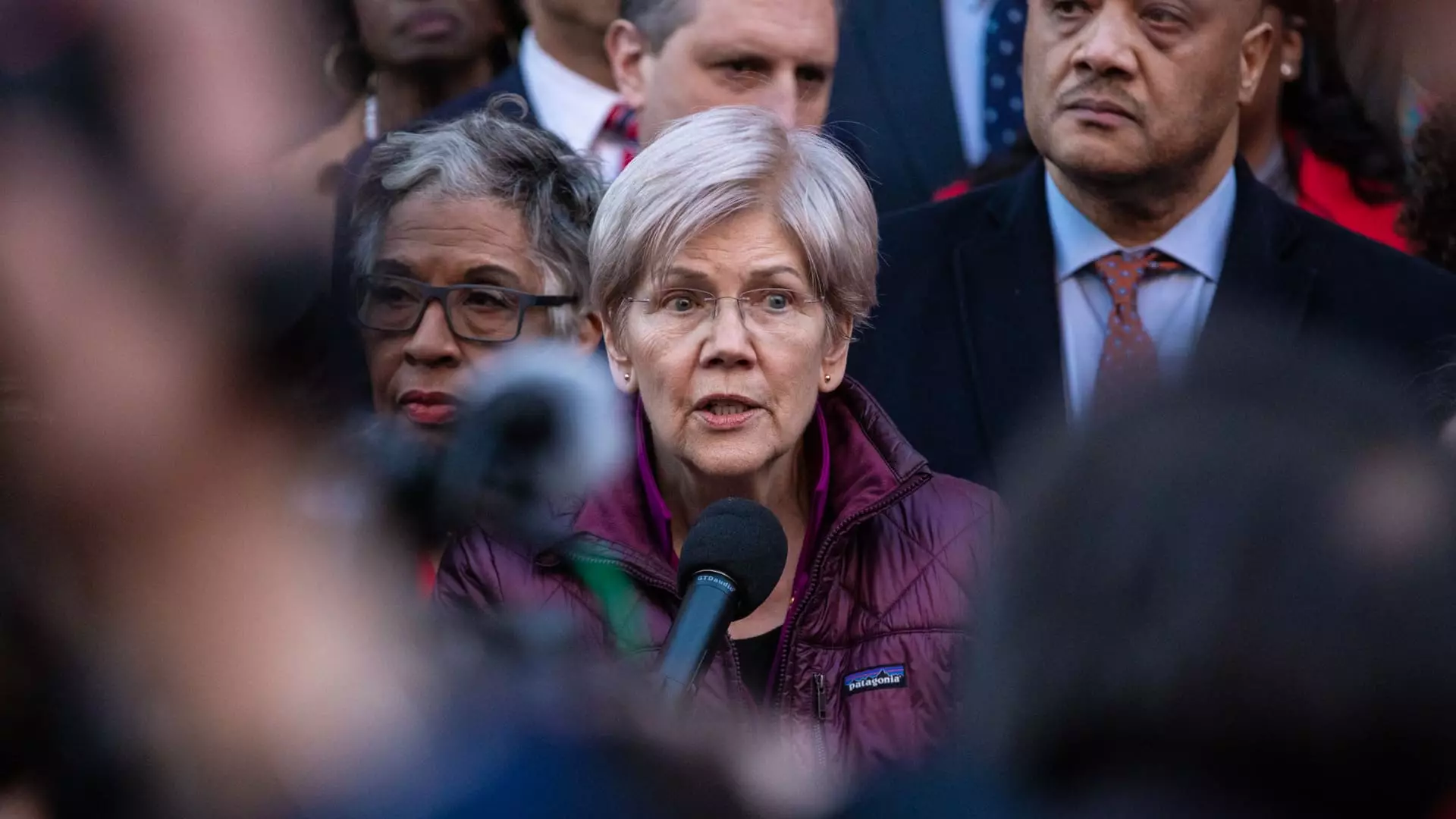The recent decision by the Federal Deposit Insurance Corporation (FDIC) to initiate widespread layoffs and workforce modifications has elicited significant concern from multiple quarters, particularly among lawmakers. The context for these changes stems from the broader policies associated with the Trump administration, which aimed to streamline government agencies and reduce perceived inefficiencies. In particular, a substantial workforce reduction of approximately 1,000 employees has been reported in the FDIC, raising alarms about the future of federal oversight in the banking sector. With such drastic changes, the implications for the stability of the American banking system warrant close examination.
Political Dynamics at Play
At the heart of this situation is a letter from Senator Elizabeth Warren and several of her colleagues, which underscores their concerns regarding the consequences of austerity measures enacted within the FDIC. The lawmakers assert that the downsizing is detrimental to the organization’s ability to effectively regulate banking institutions, as evidenced by the troubled circumstances surrounding well-known bank failures, such as that of Signature Bank. They argue that a reduced staff inevitably leads to gaps in oversight that can precipitate systemic risks. Such a perspective highlights not just political criticism but a call to action, examining the balance between austerity and regulatory efficacy.
Legislative Responses
Warren’s correspondence with Inspector General Jennifer Fain encapsulates a serious inquiry into how workforce reductions might impair the FDIC’s core mission of maintaining the stability and integrity of the banking system. The Inspector General, in her subsequent response, hinted at an ongoing evaluation of these staffing changes, implying a recognition of the urgent need to reassess the FDIC’s operational capacity. The phrase “full effect and impact” suggests the complexities inherent in measuring the ramifications of job cuts in a regulatory environment—one that thrives on thorough inspections and close interactions with financial institutions.
The failure of Signature Bank, which occurred against the backdrop of these job cuts, offers a sobering reminder of the potential consequences of diminished oversight. This incident marks a significant event in banking history, parallel to the crisis of 2008, raising questions about whether lessons learned in past economic turmoils have been adequately internalized by stakeholders today. The senators’ assertion that staffing shortages led to “supervisory delays, canceled exams, and quality control issues” paints a vivid picture of how operational shortcomings can have cascading effects on the financial system’s stability. This critique underscores a broader theme: the dangers of underregulation and the need for vigilance.
Public trust in financial institutions is predicated on a robust and responsive regulatory framework. The alarming trend of layoffs within the FDIC threatens to erode this trust, leading consumers to question the safety of their deposits. Confidence is a cornerstone of banking; when the public perceives vulnerabilities in oversight, it can lead to adverse economic behaviors such as bank runs or heightened saving rates, both of which can destabilize financial institutions even further. Thus, the fallout from workforce reductions transcends political discourse, impacting everyday consumers in significant ways.
Looking Forward: A Call for Re-evaluation
As we reflect on the implications of staffing cuts at the FDIC, it becomes evident that a critical reassessment of priorities is urgently needed. Preserving regulatory capabilities must take precedence over budgetary efficiency, particularly in an era where financial systems are prone to instability. Policymakers, regulators, and consumers alike must advocate for a balanced approach that ensures the FDIC maintains a workforce capable of fulfilling its mission efficiently and effectively. This is not merely a regulatory concern; it is vital to safeguarding the economic future of countless Americans.
The actions surrounding the FDIC’s workforce reductions point to a broader need for discourse on regulatory integrity amidst government downsizing initiatives. The stakes could not be higher, as the stability of the banking system hinges on the very oversight that deliberate reductions threaten to undermine. Going forward, it is imperative that we collectively prioritize sustainable regulatory practices to maintain the integrity and trust inherent in our financial systems.

